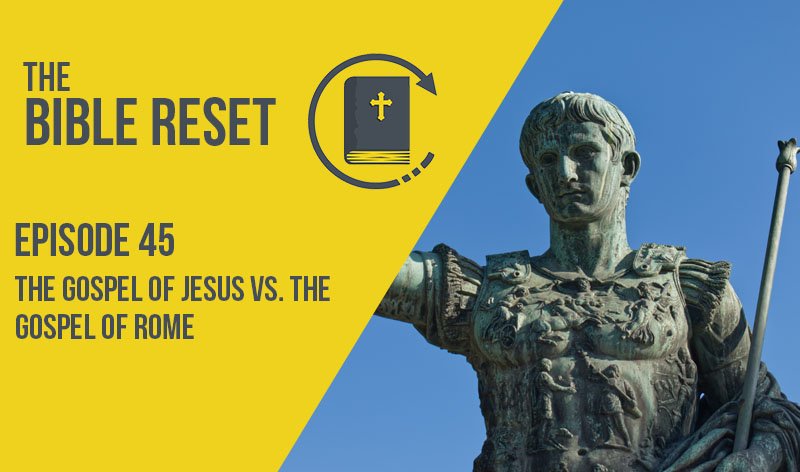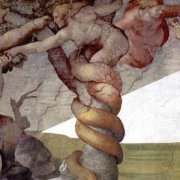Episode 45: The Gospel of Jesus vs. The Gospel of Rome
We can be tempted to think of the word “gospel” as a private, spiritual word. But in Jesus’ day, “gospel” was public news with implications for the whole world.
When Jesus was born, he entered a world that already had it’s own gospel: the good news of Caesar and the Roman empire. The similar language is striking, and shows that the announcement about a Jewish Messiah directly confronts the Roman story.
The Institute for Bible Reading is a nonprofit ministry. Support our work, including the production of The Bible Reset podcast, by joining ChangeMakers: https://instituteforbiblereading.org/changemakers/
Records and sources showing how Rome told their story:
Roman statesman Pliny the Elder declared that Rome was a universal gift to the world:
The Roman peace has a boundless grandeur, a peace which takes in not only men in their different lands and tribes, but also the mountains and peaks soaring into the clouds, their offspring and even the plants. May this gift of the gods last, I pray, forever! Truly the gods seem to have given to the human race the Romans, as it were, a second sun.
Later, Aristides, another historian, added this about the rise of the empire:
Before the rule of the Romans the dregs came to the surface and everything happened through blind chance; but since your appearance confusion and revolt have come to an end. Order has returned everywhere and in everyday life and in the state there is clear light of day. Cities now gleam in splendor and beauty, and the whole earth is arrayed like a paradise.
A decree about Caesar Augustus, written just a few years before Jesus was born:
The birthday of the most divine emperor is the fount of every public and private good. Justly would one take this day to be the beginning of the Whole Universe . . . for when everything was falling into disorder and tending toward dissolution, he restored it once more and gave to the whole world a new aspect. Justly would one take this day to be the beginning of Life and Living for everyone.
Virgil, a friend of Augustus, wrote in the Aeneid:
This, this is he whom so often you hear promised to you, Augustus Caesar!
Son of a god, who shall again set up the golden age in Latium,
Amid the fields where Saturn once reigned,
And shall spread his empire past Libya and India,
To a land that lies beyond the stars
And in the Eclogues he says:
He will live as god and observe the heroes of ancient times;
walking among the gods: they will behold him in amazement.
Peace he will bring to the world, governing it with the Father’s power.
The goats themselves will come home with udders full.
No longer will the herds of grazing cattle fear the lion,
Even from his cradle sprouts a wreath of flattering flowers.
The serpents will disappear; harmful, poisonous plants will vanish;
the fields of Assyria will yield balsam in abundance.
Now, offspring of Jupiter, dear child divine,
Already comes the time; assume the dignity sublime!
See the heavy burdens of the world convulse and heave,
Lands and seas’ breadth alike, and the depths of heaven,
See how they all rejoice at the golden age that now appears.
A Roman inscription found near Ephesus, written in 4 BCE:
[Caesar is] the god made manifest, the universal savior of human life. Land and sea have peace, the cities flourish in harmony and with an abundance of food, there is an abundance of all good things, people are filled with happy hopes for the future and with delight in the present.
An inscription found in Asia Minor from 9 BCE:
The Providence which has ordered the whole of our life, showing concern and zeal, has ordained the most perfect consummation for human life by giving to it Augustus, by filling him with virtue for doing the work of a Benefactor among men, and by sending in him, as it were, a Savior for us and those who come after us, to make war to cease, to create order everywhere; the birthday of the god Augustus was the beginning for the world of the gospel that has come to men through him.








